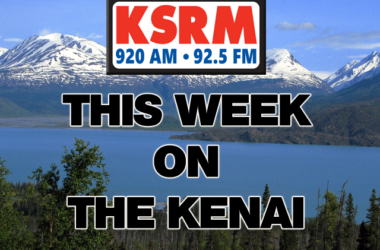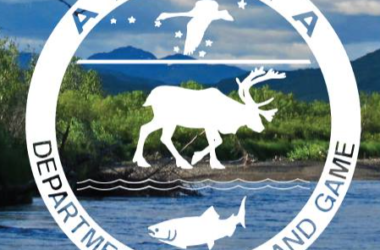Three of the Kenai Peninsula’s Legislative individuals spoke about a carbon storage bill on KSRM’s long-running political talk show, Sound Off with Duane Bannock on Tuesday. They explained that though they may not be the biggest fans of the process itself, the overall goal is to benefit the community economically while ensuring we can heat our homes during the colder months.
Representative Justin Ruffridge opened the conversation by saying how House Bill 50 came to be.
“That actually started off as a simple carbon storage bill. It would have allowed the, I guess, carbon sequestration as a result of either the production of natural gas or coal plant or other things, the injection of carbon into the ground as a way to store and sequester carbon,” explained Ruffridge, “but there were a number of things added to HB 50, particularly in regards to some of the natural gas production and other things that it ended up being a large omnibus bill for energy, natural gas, and carbon storage all in one sector.”
Senator Jesse Bjorkman followed Rep. Ruffridge’s statement by explaining why a bill like this matters to residents on the Kenai Peninsula.
“First, it allows for reserves-based lending so that companies like Blue Crest off at Anchor Point, as well as Fury, down there, can go and get more working capital so that they can go drill more wells and produce more gas. That’s a big deal. Also, it allows for the regulation of additional storage room for natural gas so that we can put more natural gas in storage we have more gas saved up for the winter. We can save that up this summer, so that we have more gas to burn throughout the winter,” says Bjorkman.
Bjorkman reminds us that the cold snap of 30 degrees below zero almost caused our natural gas system to lose pressure during the winter. This was because there was not enough gas coming from the ground, production feels, or the storage facilities.
Situations like these are considered extremely unsafe for homes and businesses, which is why a bill like this can provide the opportunity to have more gas to burn throughout the colder season.
“Part of House Bill 50 includes two parts that matter for natural gas production and Cook Inlet Reserves-based lending—a huge deal—which provides [the] opportunity for companies to drill for gas and oil and Cook Inlet, as well as provide for more that gas storage piece, which allows utility companies to store natural gas in HillCorp storage,” said Bjorkman.
Representative Ben Carpenter doesn’t necessarily agree with the bill, but he did support it. He explains that the State needs to be able to compete economically, and this can help.
“Well, because the industry is hampered by being able to get money; I’m talking to investment funds there. Outside the state of Alaska that are helping enable economic growth. This is the world we live in right now. It’s complete nonsense in my mind, carbon dioxide down in the ground. But this is the world we live in. So if we’re going to compete, we have to compete in this in this arena,” said Carpenter.
Rep. Ruffridge agrees with Rep. Carpenter’s statement that the world is changing, so we have to change our game plan too. There are companies that would like to purchase spaces and help produce our natural resources, such as oil and natural gases, but there are some requirements in order to do so.
“Let’s take Santos, for example. In order for them to move to phase two on their project on the North Slope, they have said we have to have some means by which to sequester carbon in order to move to phase two. Phase two is putting more oil into the pipeline and I think most people would agree we would like to have that happen. And they’re saying this is this is the Australian government’s way of doing business. In order to move on, we have to have some sort of carbon sequestration option. And so I think that’s really the monetization of that is how do we get more oil into the pipeline, and recognizing that some of these companies in order to come here and do business, this is the thing they have to have in order to do it,” says Ruffridge.
Bjorkman says major policy changes are needed to encourage more oil and gas development on the North Slope. It includes some carbon storage and other abilities, so other companies can make more investments in Alaska.
“Some people aren’t crazy about carbon storage. I’m not crazy about putting fertilizer in the ground either. But these companies that want to come and invest in Alaska, that’s what they need in order to bring those dollars here. So we’re welcoming of those dollars in the jobs that are being brought to Alaska by companies like Santos because it can pass good energy legislation,” said Bjokrman.






